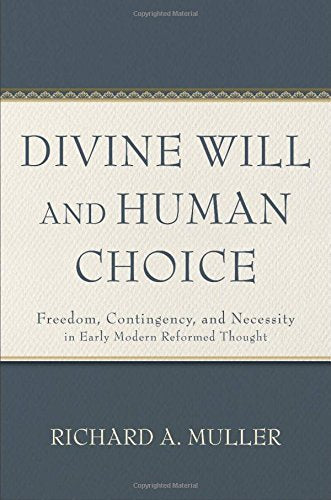Divine Will and Human Choice: Freedom, Contingency, and Necessity in Early Modern Reformed Thought
Muller, Richard A
The relationship between divine providence and human freedom remains one of the most vexing topics in Christian theology. Many gravitate to extreme ends of the spectrum, with a version of hyper-Calvinism on one end or perhaps some form of open theism on the other. Christian theology seems ever in search of a way to articulate a balanced picture of a sovereign God in relationship to humans who can make choices.
This fresh study from an internationally respected scholar of the Reformation and post-Reformation eras shows how the Reformers and their successors analyzed and reconciled the concepts of divine sovereignty and human freedom. Richard Muller argues that traditional Reformed theology supported a robust theory of an omnipotent divine will and human free choice and drew on a tradition of Western theological and philosophical discussion that included such predecessor thinkers as Thomas Aquinas and Duns Scotus. In arguing this case, the book provides historical perspective on a topic of current interest and debate--the issue of freedom and determinism--and offers a corrective based on a broader analysis of the sources.
-
Cover Type
-
ISBN
-
Publisher
-
Publication Date










